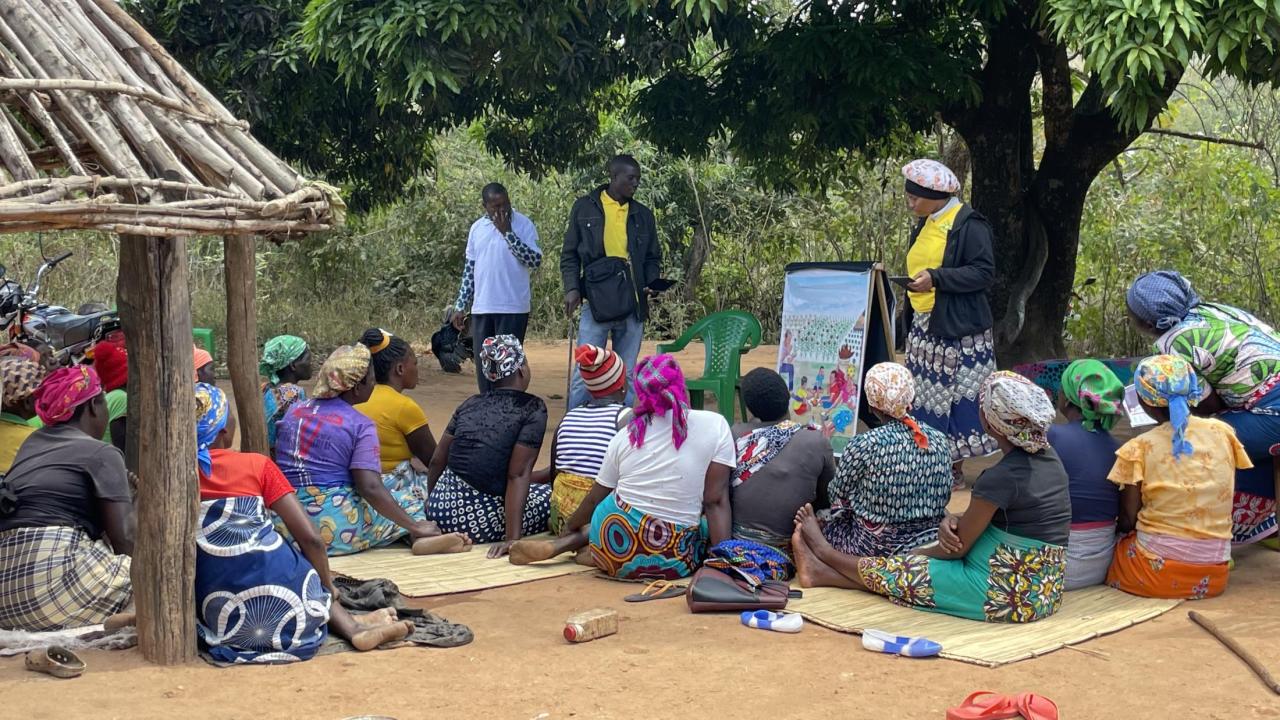
Understanding Women's Incentives Around an Agricultural Resilience Bundle
Quick Summary
- The MRR Lab project, Subsidizing Learning About Resilience-building Agricultural Technologies in Mozambique hypothesizes that women may perceive some disincentives in adopting a bundle of drought-tolerant maize seeds and index insurance.
The MRR Lab project, Subsidizing Learning About Resilience-building Agricultural Technologies in Mozambique tests how learning supports sustained adoption of a resilience-building bundle of drought-tolerant maize seeds and index insurance. Although men tend to be the primary decision makers around crop choice and inputs, women’s role in providing agricultural labor makes their buy-in important to the decision to adopt. The team hypothesizes that women may perceive some disincentives in adopting the bundle—particularly around time and control over resources—that can impact households’ decision to purchase it.
Disincentives for women may arise from possible shifts in the household’s agricultural production. Because the seeds+insurance bundle makes crop investments more secure, adoption of the bundle may occur alongside decisions to intensify production, such as increasing use of fertilizers or expanding planted acreage. The researchers also hypothesize that farms will also shift from subsistence to commercial agriculture. Beyond anecdotal evidence that costly investments tend to be reserved for market-destined crops, farms need capital to invest back in the resilience-building bundle, and will likely seek a return on the cash investment.
These shifts may have significant implications for women’s time and control over resources. Most intensification strategies increase the amount of labor needed. Where farmers rely heavily on household labor, the demands on women’s time are likely to increase. Women may also be expected to shift their labor from subsistence cultivation to the cash crop. Research to date has found that men tend to capture the additional profits of commercial production; women often receive an income transfer from their husband that may not reflect additional profits. Overall, women may have less control over cash crop income than the food they produce for household consumption.
While the bundle’s potential to reduce losses in the event of drought should be attractive to women, it is unclear how they weigh that benefit against potential decreases in their time spent on subsistence production, housework, childcare, and rest, as well as a reduction in resources that they control. The research team recognizes that misaligned incentives within households may reduce the impact of the learning opportunities being tested by the project—as well as the intended benefit to farming households of higher and more stable income—if women do not support adoption of the seeds+insurance bundle. The project recently received additional MRR Innovation Lab funds to test this hypothesis while improving intra-household collaboration.
New activities include: 1. Separate educational sessions targeted to women and men, which focus on gender-differentiated risks and the expected effects of the seed+insurance bundle, and 2. Joint training sessions to encourage couples to share profits between them. Additionally, two new modules will be added to the household survey: an Agricultural Labor Allocation Module, and the International Food Policy Research Institute’s Abbreviated Women’s Empowerment in Agriculture (A-WEAI) module[i]. The additions promise to yield new insights into how women and men evaluate and experience tools developed to increase farming household resilience.
[i] Malapit, Hazel J.; Pinkstaff, Crossley; Sproule, Kathryn; Kovarik, Chiara; Quisumbing, Agnes R.; and Meinzen-Dick, Ruth Suseela. 2017. The Abbreviated Women’s Empowerment in Agriculture Index (A-WEAI). IFPRI Discussion Paper 1647. Washington, D.C. http://ebrary.ifpri.org/cdm/ref/collection/p15738coll2/id/131231
